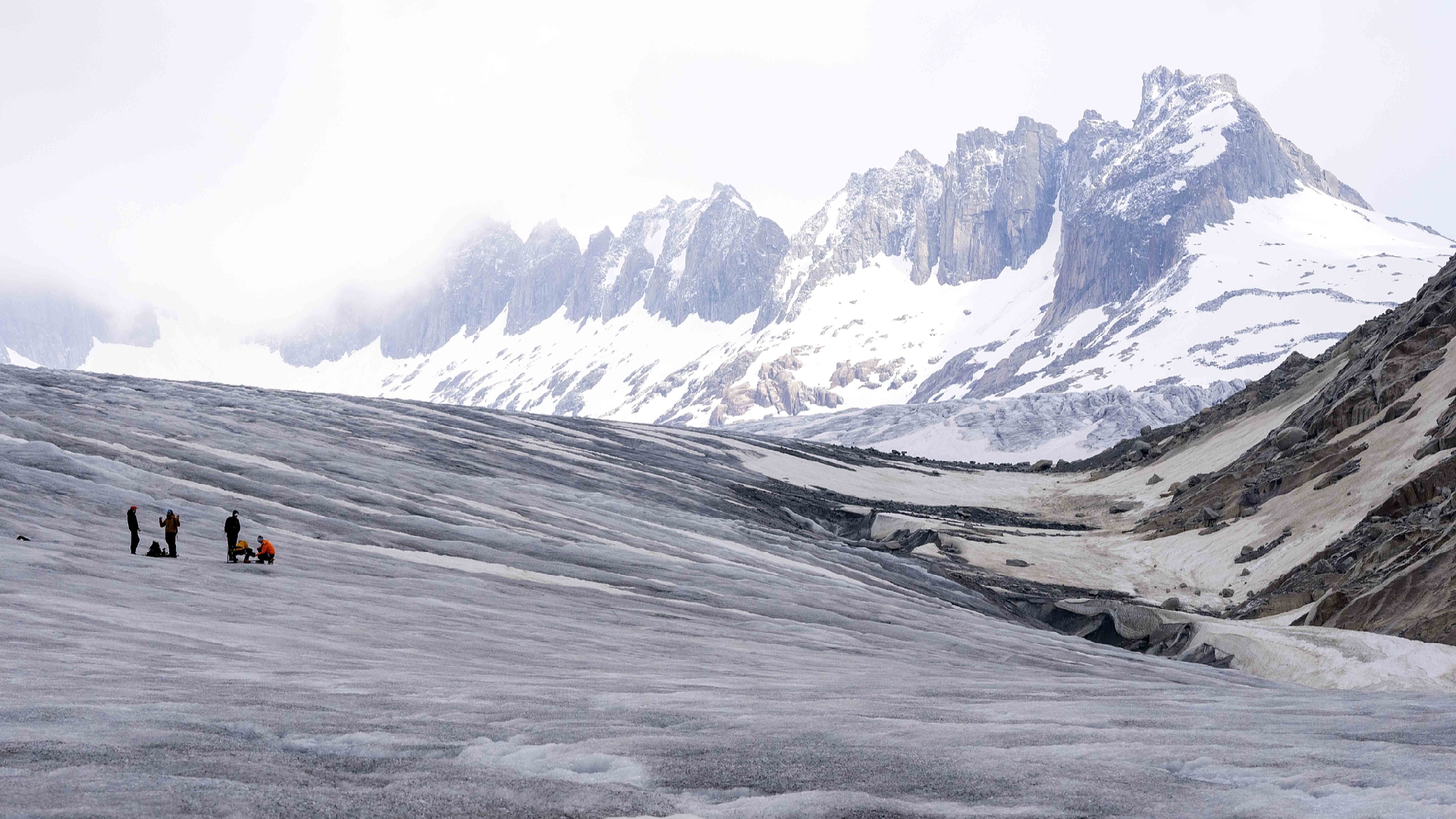Snowy Winter Fails to Halt Swiss Glaciers' Path 'on track to disappear'
A cold winter brought no relief for Switzerland's glaciers, which experienced a 2.4 percent reduction in volume over the course of a year, while Saharan sand intensified the melting during the summer months.

A study conducted by the Glacier Monitoring in Switzerland (GLAMOS) revealed that the past year has been "exceptional both in terms of accumulation and melt" for Swiss glaciers.
Even with ongoing concerns regarding human-induced climate change and its impact on glacier retreat, this year's ice loss was less severe than the previous two years.
In 2022 and 2023, Swiss glaciers experienced a volume loss exceeding 10 percent. In contrast, the annual volume loss over recent decades, excluding those exceptional years, has typically ranged from one to three percent.
The 2.4 percent shrinkage observed this year was notably higher than the 1.9 percent annual average recorded between 2010 and 2020.
"This amounts to a massive loss of ice again," stated GLAMOS head Matthias Huss.
He warned that glaciers "are retreating faster and faster" and "are on track to disappear."
"They will only be there in 100 years if we manage to stabilize the climate," he added.
"Not surprised"
Researchers from GLAMOS conducted comprehensive measurements at 20 glaciers in September and applied their findings across Switzerland's 1,400 glaciers.
The analysis indicated that the total volume of Swiss glaciers will measure 46.4 cubic kilometers by the end of this year, which is nearly 30 cubic kilometers less than in 2000.
The ice loss witnessed in 2024 was particularly "considerable ... given the strongly above-average snow coverage at the end of winter," according to the study.
Through June, Swiss glaciers enjoyed winter snowfall that was 30 percent above average, along with a rainy start to the summer.
"I hoped for a better result for 2024, especially after this snow-rich winter and the good situation we had into June," Huss remarked.
However, he admitted to feeling "disappointed" yet "not too surprised."
"We are living in a time with rapid climate change, and glaciers are just not able to keep up with the speed the climate is warming," he explained.
"Under the present climate situation ... it's not possible to stabilize glaciers, even with an optimal winter."
The study identified "very high" temperatures in July and August, combined with a lack of fresh high-altitude snowfall, as factors contributing to "the significant glacier mass losses."
August stood out as particularly hot, leading to record-high glacier mass losses, according to GLAMOS.
Another significant factor was the influx of "substantial amounts of Saharan dust into the Alps" due to winds during the winter and spring of 2024.
This contaminated snow absorbed more heat and melted more rapidly, hastening the loss of the glaciers’ protective snow covering.
While researchers have not yet quantified the total impact of the Saharan dust on 2024 ice loss, the study suggested that "an increase in melt rates of 10-20 percent compared to normal conditions appears plausible."
Shifting borders
The ramifications of glacier melt are profound.
Recently, Switzerland and Italy modified their mountain border under the Matterhorn after the glaciers that traditionally defined the boundary receded.
With reduced ice volume, there is significantly less meltwater flowing into downstream areas during the summer months when it is needed most, which GLAMOS highlighted as a factor that could "pose important challenges for the future management of water resources... especially during drought periods."
Huss emphasized the urgent necessity to address climate change.
The United Nations has cautioned that global efforts are far from achieving the 2015 Paris climate accord goals, which aim to limit temperature rises to below 1.5 degrees Celsius above pre-industrial levels.
However, Huss expressed concern that, amid various global conflicts and crises, decision-makers are not prioritizing climate action adequately.
He concluded, "The glaciers ... are just illustrating every year again that there is an urgent need to act now, and not in one or two or three decades."
James del Carmen for TROIB News
Find more stories on the environment and climate change on TROIB/Planet Health












